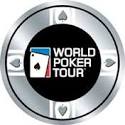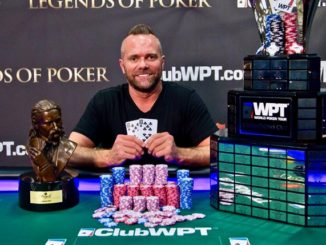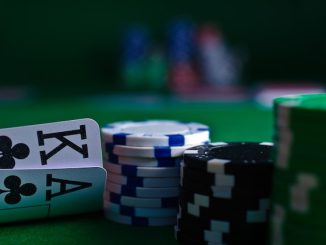The recent debut of the “quantum reload” concept at the recent World Poker Tour Legends of Poker event serves as the latest in a series of stark reminders that the poker market continues to mature, and that trying to keep the game’s major events new and fresh isn’t as easy as it seems. The WPT event, held at the Bike in LA, drew a large amount of controversy and plenty of scathing comments, led by Allen “Chainsaw” Kessler.
Kessler is likely the poker world’s foremost complainer when it comes to evaluating tourney structures from the players’ perspective. Sometimes his complaints are valid, sometimes not so much, but some of the hidden ingredients in the Legends of Poker’s quantum-reload event incensed Kessler enough to call for a boycott. He also asked, via an informal poll in a thread on 2+2, as to whether players believed the new concept — which has been trademarked by Mo Fathipour, the owner of the concept and its parent company, Quantum Tournaments — is “good” for poker.
 Though a 2+2 poll is laughably unscientific and unrepresentative, the fact that more than 75% of about 180 respondents agreed with Kessler’s assertion: that the concept is bad for the game. As it was debuted at the Bike, the quantum reload concept included so many hidden bells and whistles and skewed the expected value of the tournament toward deeper-pocketed pros, as rebuy events are wont to do.
Though a 2+2 poll is laughably unscientific and unrepresentative, the fact that more than 75% of about 180 respondents agreed with Kessler’s assertion: that the concept is bad for the game. As it was debuted at the Bike, the quantum reload concept included so many hidden bells and whistles and skewed the expected value of the tournament toward deeper-pocketed pros, as rebuy events are wont to do.
The problem with the concept as it was employed at the Bike, as notably explored by Kessler and others, is that the rules of the event allowed players to purchase back in at the start of Day 2 play, for more money and for a significantly larger number of chips that the “official” buy-in amount and chip stack given to official Day 1 entrants.
To the best of this writer’s recollection, this is the first time that a live event — certainly a live WPT event, at the least — has employed a reload option that would provide more chips than even a rebuy+addon would entail. The net effect was to render the initial buy-in of the event larger meaningless, and that’s what drew the majority of the ire from Kessler and other players.
For the record, I don’t hang around 2+2 much and didn’t vote in Kessler’s poll, but if I had, I would have voted for the majority opinion that decreed the new concept as being bad for the game. I say that while admitting to not being a fan of rebuy events in general. (I prefer freezeouts, in part because the idea of a once-only buyin appeals to my sense that all players should have an equal chance in any event.)
Further, I’d go so far as to state that the vague and conflicting manner in which the concept was defended by Fathipour and the WPT’s Adam Pliska, who also has a stake in the concept’s success, were so conflicting and contradictory as to come close to being false and misleading advertising. Fathipour, in defending “his” concept, even declared, stunningly, that, “The day 2 direct buy-in can be viewed as the official day 1 start, where the $3,700 sessions can be viewed as qualifying heats for the official day 1, where the player carries their chips forward.”
The flip side of that, what in mathematical logic terms is the “also true” deduction called the contrapositive, Fathipour’s statement implies that all those Day 1 players who thought they were participating in a real WPT event real weren’t: It was just a glorified satellite. I found that to be an embarrassing defense, which probably means Fathipour won’t be calling me to offer me freelance writing work any time soon, not that I’ve been looking.
So be it.
But the greater problem is this: The quantum reload concept as it was rolled out at the Bike didn’t come close to achieving what its creators said it would. Here’s an excerpt from the explanation at the quantumtournaments.com site:
Quantum Reload is a Unique Double Entry Tournament
The unique structure of Quantum Reload Tournaments (patent pending) gives rise to several major benefits to the modern Casino. During the multiple sessions, your tournament players are offered several opportunities to add chips to their stack. This structure also gives the advantage of 55 minutes to each of the first four rounds. This offer is beneficial to players of all levels.If a player is eliminated early in the game, they can come back at the end of the second hour and re-enter the same tournament. The incentive for players to re-enter the later starting time is that the prize pool is larger than the original guarantee. The price of the second entry is minimally larger, but they get more chips than their first entry. The players will usually play other house games or dine at the Casino while waiting for the next entry time. We have noticed about a 50% increase in the overall volume of players and this structure keeps players in the house longer.
Never Miss a Guarantee
Our “Quantum Reload Structure” allows for much larger prize pools. Our experience has been pools often reach 150% to 250% of the guarantee. Using the example of our cheapest tournament QR guarantees have gone from $3000 to $5000. Of the 120 Quantum Tournaments played to date, we have never missed a guarantee. (records available upon request).
Those few paragraphs gloss over several serious issues. First, the concept is being pitched to casinos as a moneymaker — more on this to follow, and the “offer” is declared to be “beneficial to players of all levels” without any substance to the claim.
Later on, the price of the second entry is declared to be “minimally larger” — that is, as in the case of the event at the Bike, if $10,000 (the Day 2 re-entry price) is minimally larger than Day 1’s $3,500 fee. Yeah… right.
And of course, there’s the “Never Miss a Guarantee” claim, which they should get around to editing some time soon. The WPT Legends of Poker main event which featured this format carried an official, but asterisked, “guarantee” of $4 million. The actual prize pool? $2,172,994. That’s a wee bit short of four milly, though th concept’s owners will probably lean mighty heavy on that asterisk and claim that no official guarantee was ever in place.
There’s no real way to look at this as anything other than a failure, the claims of the Bike, the WPT, Pliska or Fathipour notwithstanding. The utter failure to come close to the suggested guarantee, when contrasted with QuantumTournaments’ claim that a guarantee has never been missed proves one thing for sure: Reload events aren’t as nearly scalable as tournament organizers would like them to be.
The quantum reload fiasco also demonstrates how desperate some venues are to grow their poker and gambling markets vertically, since the maturity of poker in this post-Moneymaker era means that everyone is trying to extract more and more dollars from the same core population of players. That’s why so many venues, both live and online, have introduced rebuy formats, at the direct risk of losing customers who have a fixed amount of either time or cash to invest in an event.
As a marginally related example, I used to be a regular participant in online tournaments on the US-facing Merge Network, but I finally gave up on the site. Merge and its flagship offering, Carbon Poker, were faced with the same dilemna: the perceived need to grow or maintain the business by extracting more dollars per player from those participating on the site. In Merge’s case, that meant an abandonment of old and popular freezeout tourneys, with virtually nothing available but rebuys, made worse by open-registration periods so long that players could often register or rebuy directly onto the money bubble.
As a player, I found it both intensely stupid and a blatant money grab. The formats also demanded the commitment of extra hours on my end, a commitment I wasn’t willing to make. So these days, I’m an ex-Merge player.
It’s clear that the days of easy growth in poker are far behind us. Artifacts such as quantum reloads aren’t the solution; all they accomplish are a muddying of the baisc rules and player expectations for an event while not really accomplishing what the casino wants, which is to take in -lots- more money. If the concept fades away, the poker world would indeed be better for it.
100% up to $3,000 Bonus
Bovada is our most recommended ONLINE CASINO and POKER ROOM for US players with excellent deposit options. Get your 100% signup bonus today.





Leave a Reply
You must be logged in to post a comment.